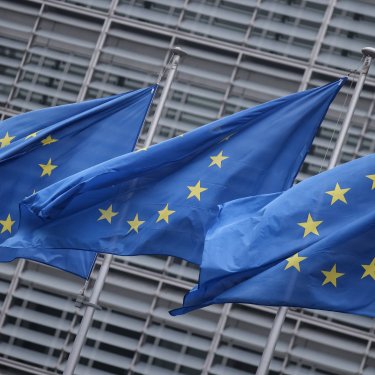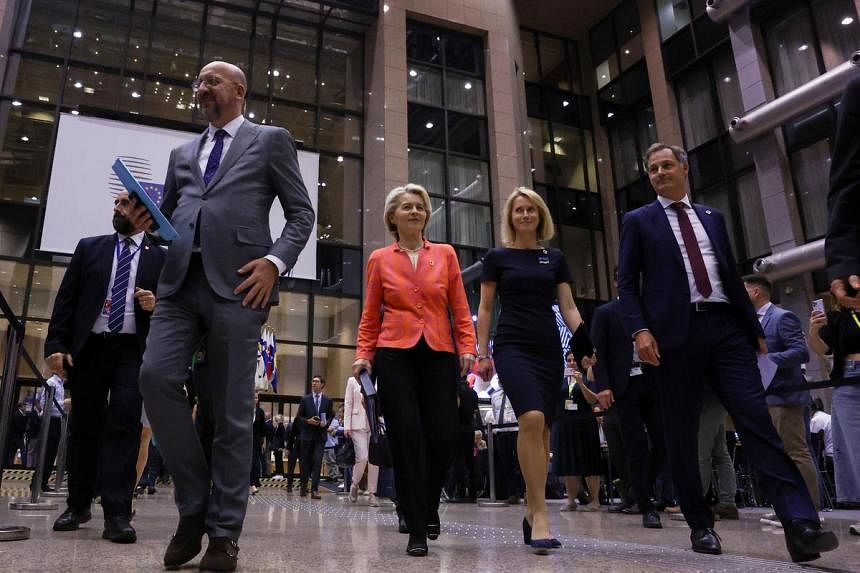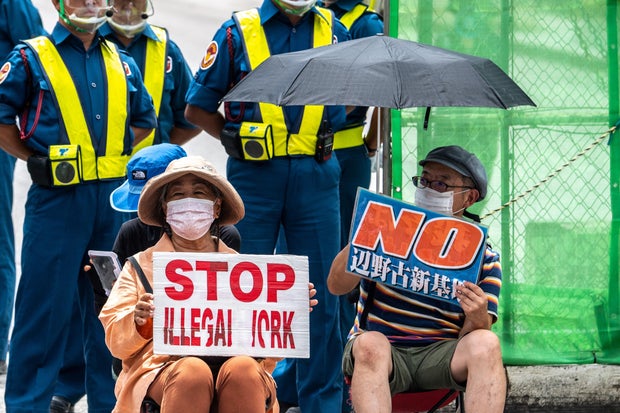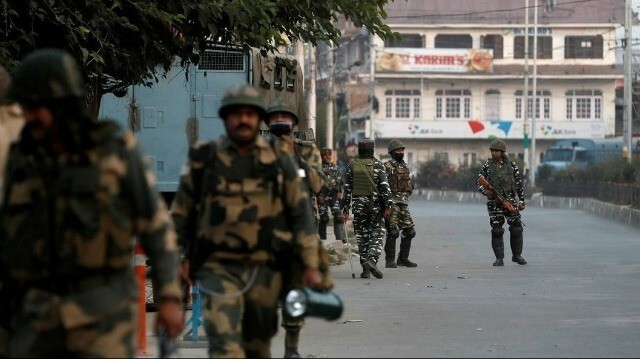Budapest is expected to stall the EU’s most important initiatives
28 June 2024
Vilmos Bábel

Hungary has set lofty ambitions for its time at the top of the European Council, but a lack of political goodwill and difficult timing – as the EU continues to transition into the next term – means Budapest is more likely to simply freeze the EU’s most important priorities.
“Make Europe Great Again.” That’s the motto of the Hungary’s EU Presidency of the Council of the EU, which begins on 1 July, but it is likely to mean just as little as the US version.
A puzzling relationship
MEGA doesn’t mean much on its own. It is an ambiguous maxim, whose meaning can be bent to mean whatever the government in Budapest decides it means on any given day. The only concrete interpretation is the obvious nod towards the Hungarian government’s like-minded friends across the Atlantic, as Viktor Orbán continues to bet on a Donald Trump autumn victory and resultant power reshuffle.
The Hungarian Presidency’s logo, on the other hand, serves as a great analogy for the upcoming six months.
It resembles the Rubik’s cube, a famous Hungarian puzzle, with the Hungarian flag on one side and 12 gold stars on a blue background on the other. The Rubik’s cube is made up of 27 elements, echoing the number of EU member states.
As Zoltán Kovács, Government Commissioner for the 2024 Hungarian presidency said at a press conference recently, “Although we often think in many different ways, the cube, once solved, gives us the opportunity to see both European unity and the will and interests of the member states and nations at the same time.”
Solving a Rubik’s cube, however, is a tedious game of luck without proper practice. For years, the Hungarian government has been reluctant to put in the hours. It does not function well in an environment based on compromise, because Orbán’s style of governing is that of conflict, of overcoming opponents rather than persuading them. Put simply: it is everything that EU decision-making is not.
It speaks volumes that Minister of European Affairs János Bóka, along with international spokesman Zoltán Kovács, takes every chance to emphasise that “As a presidency, we will be honest brokers working loyally with all member states and institutions.” Such intent has not been seen from Budapest since 2010, and that is unlikely to change despite such promises.
János Bóka has also outlined that the Hungarian presidency will have seven main priorities:acceptance of a New European Competitiveness Deal;
the reinforcement of the European defence policy;
a consistent and merit-based enlargement policy;
stemming illegal migration;
shaping the future of the cohesion policy;
a farmer-oriented EU agricultural policy;
and addressing demographic challenges.
If one considers that most of the Hungarian presidency will occur during the transition period, when the Commission will only be forming, these goals seem more than a little ambitious. It is far more likely Budapest will freeze the EU’s most important processes, whether deliberately or not.
Breaking down the Hungary EU presidency “priorities” – a mixed bag
Speaking at ECOFIN at the end of June, the Hungarian finance minister said they will develop a proposal aimed at boosting the EU’s competitiveness through the more efficient use of resources, particularly in taxation. He added that the Hungarian presidency will oversee the adoption of the “VAT in the Digital Age” proposal package.
One of the few success stories of the last 14 years of Orbán governments has been their tax policy. Not its content – the Hungarian VAT of 27% is the largest in the EU and objectively pejorative for society’s poorest – but there has been progress made in the way taxes are collected.
The whole system went through an extensive digitalisation process, which can be felt in two important ways: one can pay by card even in the most remote parts of the country, and there is no more wrangling with receipts. The presidency might just find some success in this area.
Defence policy is among the few things where Hungary is in line with the collective thinking of member states (of course excluding Ukraine-related topics), and the issue of illegal migration is just about the only thing where Europe has gradually aligned itself with Hungary. One can expect agreement on both subjects, but there is not much wiggle room for actual progress.
The enlargement policy is important for the Hungarian government, but only when it comes to its friends. Even though accession negotiations have started with Ukraine, this process is not likely to continue during Hungary’s EU Presidency, says Visegrad Insight Fellow Dorka Takácsy, an expert on the politics of the CEE region. She explains that the other member states have taken this into account and have taken steps to ensure that the Hungarian presidency doesn’t do too much damage.
The decision to give Ukraine candidate status was made some time ago, and the next aid package has also been cleared. “The next six months is just something we have to get through, and then we will get back to business as usual.”
Other enlargement plans – which Hungary may support by sending experts and providing training for officials from the region – include intergovernmental conferences with all five Western Balkan candidates, opening new chapters with Serbia, closing at least seven chapters with Montenegro, opening initial chapters with Albania, establishing a negotiation framework with Bosnia and Herzegovina and starting substantial talks with North Macedonia’s new pro-integration government.
The Hungarian presidency also wants to “address demographic challenges.” One can only guess what Budapest means by this, as no plans have been put forward, and the issue is something the member states regulate on their own. The official website of the Hungarian presidency does not list a single event that is centred around demography.
But demography is an important talking point of the Orbán government, at home as well as abroad. Elon Musk, for example, has praised the Hungarian government’s subsidies for large families. The issue of demography sells well, it is a universal problem, one that gets larger by the day, and the Hungarian government claims to know the solution: the more kids you raise, the more cash you get.
However, it does not take much research to show that this approach is throwing money out the window. Slovakian birth rates, for example, are almost identical to those in Hungary, even though the Slovakian government has never subsidised childbirth.
The same goes for “a farmer-oriented EU agricultural policy”. Orbán’s carefully cultivated “man of the people” image fits well with shaking the hands of farmers protesting against Ukrainian grain exports. Other than that, it is hard to see how anything substantial could be put forward in this area.
The Hungarian presidency will also hold talks on less high-profile issues, and these might actually see some progress. Cardiovascular health, for example, is high on the presidential agenda. The objective is to achieve progress in this field by bringing Europe’s leading experts together to contribute to a European action on combating cardiovascular diseases.
There will also be multiple high-level ministerial conferences on organ donation and transplantation and an event centred around gender mainstreaming. This last subject is not usually among the main talking points of the Hungarian government – the only government in Europe without a single woman among its ministers – but it goes to show that in the upcoming six months, they will try to at least act as if they cared for European values.
Don’t expect significant changes
As Takácsy says, the rotating presidency of the Council is a PR gift to every government in the EU. Politicians can communicate that they and their countries are at the centre of EU decision-making. This does not apply as much to the Hungarian government, however, whose usual line is that Brussels is something to fight against, or, most recently, something to conquer.
Setting the Council’s agenda is the closest they will get to conquering Brussels, but it is more likely they will just try to keep things boring and get back to bashing “the bureaucrats in Brussels” as soon as possible.
In other words: they will give the Rubik’s cube a try, maybe solve one side, and then get back to yelling at it.










